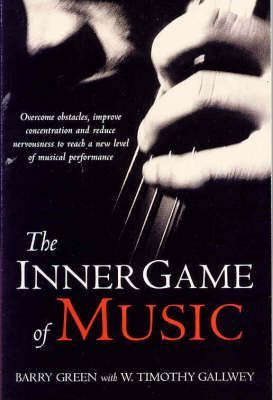There is no doubt that performance nerves can destroy a performance and it is a shame when this happens. It is particularly difficult when it happens in an exam when there is arguably more at stake. I am sure that we have all seen good players who struggle to show their talents when performing in public. But what can we do about it?
One interesting aspect of this relates to adults, particularly those who have taken up playing an instrument after retirement and find it difficult to work out why they find it hard to play in front of small numbers of people. Even though they may be able to play their instrument well. They have often had long careers and are used to presenting or possibly teaching, sometimes to large numbers, but are not always aware that all this time they have been performing, albeit in front of a different type of audience. Incidentally, Musical Directors also perform, not only at public events but at every rehearsal they are performing in a way. They have to present the music and their ideas to the group they are leading and communicate their ideas effectively. What is that if it isn’t a performance? Back to adult students then, and when someone in this group is naturally nervous of performing on their instrument, they are totally out of their comfort zone, playing something that they are less used to and are having to learn from scratch. It is also clear that after years of going into work and gaining experience in their field they are able to cope with pretty well anything that is thrown at them. So sometimes they find it hard if they can’t understand or grasp a concept or an instrument straight away. In this instance a reminder of their previous performances and asking them to visualise a time when they performed well. presenting at an event while playing does help to alleviate the nerves. In fact, visualisation can be a valuable tool for all age groups, a trumpeter imagining themselves as Wynton Marsalis or Alison Balsom for example, are often surprised at the results, and putting on this “performance mask” allows them to step away from themselves and their own inhibitions and realise some of their potential.

Another way of looking at it is to visualise the worst case scenario ie. what is the worst thing that can happen? Ok, if you mess up a solo, particularly as a professional musician, you may not be asked to perform with them again. This could lead to losing reputation and in a worst-case scenario, income leading to financial worries. It is important to get this in perspective, one less good performance will be unlikely to lead to this and most will get a second chance anyway. Is it going to have a long-term effect? Probably not, so it is important to relax and enjoy your own playing, if you can do this you are unlikely to mess up anyway.
Another thing to think about is to remember the hardest thing you have ever had to do. It may be playing a solo in a band competition or having to play in difficult circumstances. My go to event of this kind was my final recital as a mature student. I had to perform a 25 minute recital in a large(ish) concert hall in front of some world-renowned trombonists. Now I don’t know how hard that may sound but it is the most intimidating thing I have ever had to do as a player. As it turned out it didn’t go that well but I did finally get through it and passed. Now, whenever I find myself with something that is difficult and I feel nervous about (mainly solos in important competitions) I take my mind back to that recital and think that whatever I might be required to do at that moment, nothing can be anywhere near as difficult and nerve racking as that. Normally that will help with any performance nerves.
One interesting book about this subject is the “Inner Game of Music” by Barry Greene and Tim Gallwey which inspired many of the ideas here. For performance matters, particularly nerves, this is a valuable resource and I would heartily recommend it.
The Inner Game of Music – The Inner Game

This is of course a cursory glance at what is a big subject and nobody can really profess to have all the answers to this problem. There are always going to be some people who never get over their nerves but any strategies that help to alleviate this are to be welcomed. Please let me know your experience of dealing with performance nerves and don’t forget to hit the follow button to be alerted to new items.



